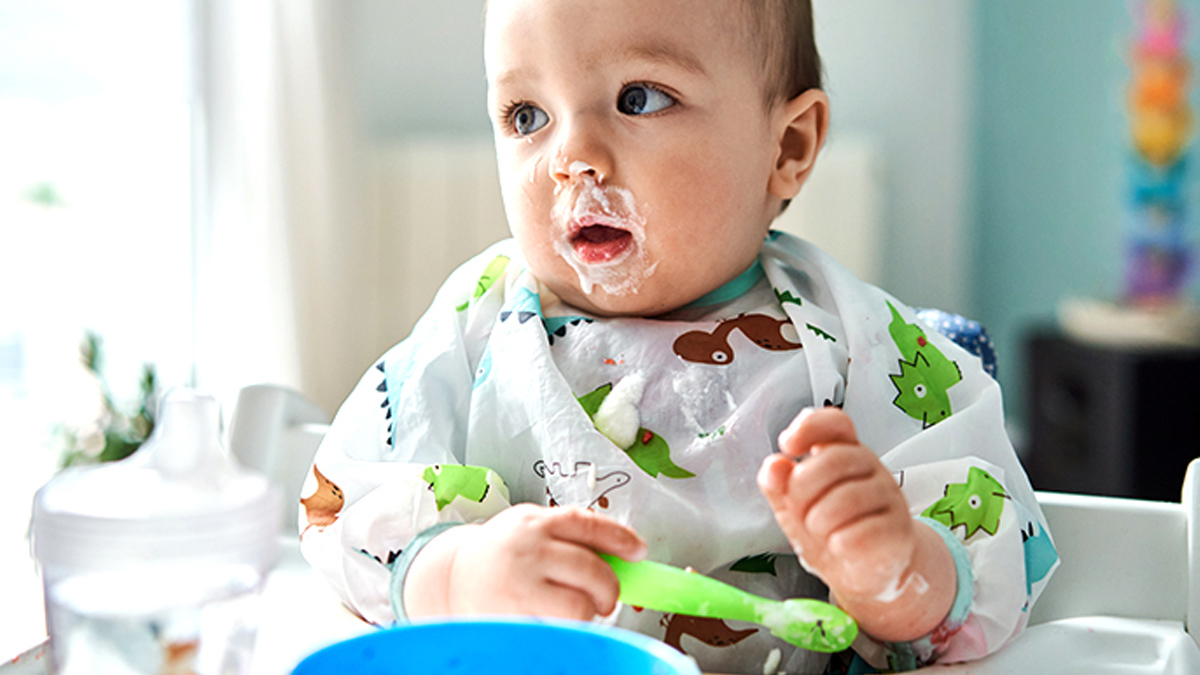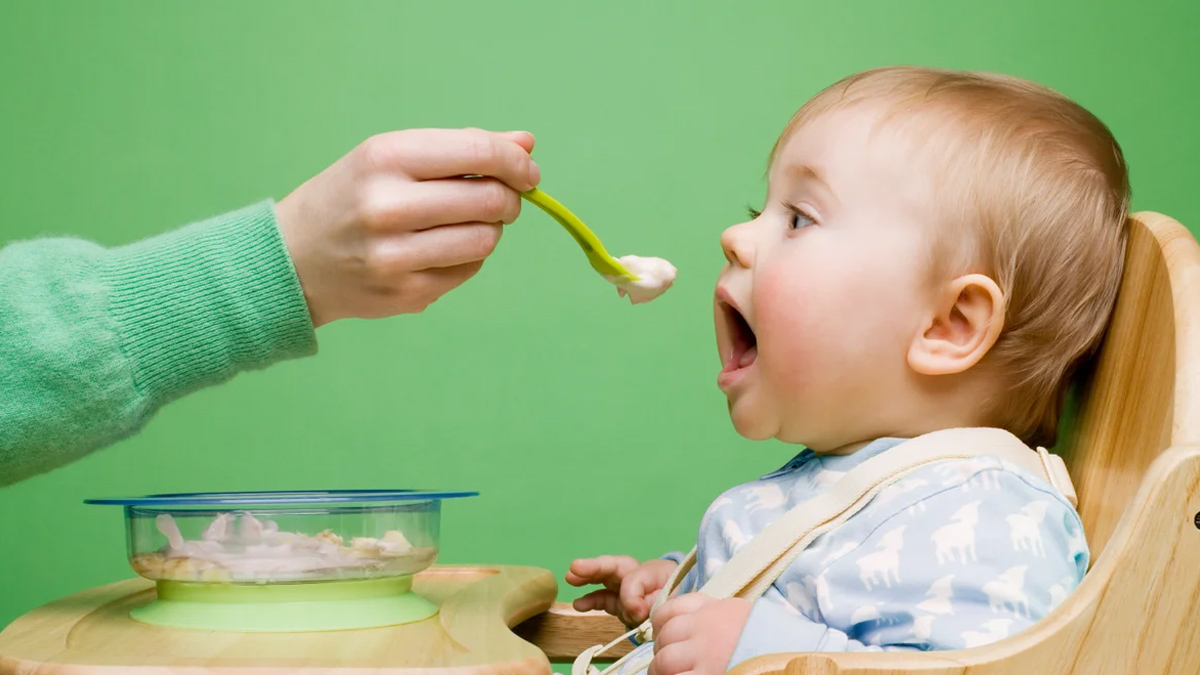
Introducing solid foods to your baby is one of the most thrilling milestones for any parent to experience, but sometimes it can be a bit daunting, particularly for beginners. What you put in your baby's body in the early months will determine how they eat throughout their life and how healthy they will be. That's why it's critical to make informed decisions regarding a baby's initial meals. Dr S Satyamanasa Gayatri Vinay, Lead Consultant - Paediatrics, SRM Global Hospitals, Chennai, says that the correct first foods are easy on small tummies, easy to digest, and less prone to causing allergies.
Table of Content:-
The 6-Month Rule: When to Start Solids![good food baby 1 - 2025-07-21T095027.520]()
Experts suggest introducing solids at six months. By six months, babies' energy requirements rise, and breast milk cannot fulfil those needs anymore. Infants typically demonstrate readiness through good head and neck control, the ability to sit with support, hand-to-mouth coordination, mouthing movements, and the emergence of the first teeth. Their digestive system is also mature enough to handle new foods. Indeed, this is the "sensitive time" when infants are most open to trying new foods; delaying solids can actually result in fussy eating later.
Solid foods during this time are supplementary to breast milk, not a replacement. That's why this time is referred to as "complementary feeding" instead of "weaning." Keep breastfeeding along with giving new foods.
ALSO READ: How To Burp Your Newborn Baby: Easy Tips For A Happy Tummy Of Toddlers
How to Start: Tips for Your Baby's First Foods![Tips for Your Baby's First Foods 2 - 2025-07-21T095040.217]()
Take it slow and easy. Start with soft, single-food items—iron-fortified infant cereals, say, or homemade rice, wheat, or ragi porridge. Introduce each new food for a few days before adding another, so you can monitor for allergies or digestive upset. After a few weeks, you can begin adding combinations, like cereal together with pulses (like dal-rice or khichdi, well-smashed).
Some safe first foods suggested by paediatricians are:
- Homemade porridge made from rice, wheat, ragi
- Mashed banana (full of potassium, easy on the stomach)
- Steamed, mashed carrot or sweet potato (full of beta-carotene)
- Mashed apple or pear puree (sweet naturally, soft in the tummy)
- Nicely mashed cereal-pulse combinations such as idli, dosa, pongal, or dal rice
- All new foods must be introduced during the daytime and not at night to observe for potential allergic reactions.
Key Feeding Tips:
- Avoid distractions such as TV or mobile phone screens during feeding.
- Feed infants when they are relaxed and never force-feed—mealtimes must be pleasant.
- Do not give salt, sugar, honey, cow's milk (as a beverage), whole nuts, or grapes (choking hazards) before 1 year of age.
- If your baby is premature or has underlying health issues, consult your paediatrician prior to introducing solids.
Foods to Avoid For Baby![Foods to Avoid baby 3 - 2025-07-21T095043.668]()
Certain foods are better skipped until your baby turns 1 year old:
- Cow's milk (as a beverage), difficult to digest and not nutritionally suitable for babies under 1
- Honey—risk of infant botulism
- Whole nuts, grapes, and other choking objects
- Processed and sugary foods
- Fruit juice (high in sugar and low in fibre)
Adapting Texture as Baby Grows
Early foods should always be soft and smooth, but you’ll want to start adding more texture as your baby gets closer to 8-9 months, like lumpy mashed foods, small pieces of boiled veggies, or soft fruits. This helps with their chewing skills and acceptance of new foods.
A study by the American Academy of Paediatrics affirms that the introduction of solids at 4–6 months (ideally 6 months) results in increased acceptance of a broad range of foods and decreased susceptibility to subsequent picky eating or allergy. The study also highlights the value of feeding soft, single-component foods and continuing breastfeeding during the transition.
ALSO READ: Are Roblox and Minecraft Safe? A Parent’s Guide to Online Gaming
Conclusion
Introducing solids is a unique milestone in your baby's development. Watch for signs of readiness, begin with basic, mushy foods, and steer clear of typical allergens and choking hazards during the first few months. Keep mealtime joyful and low-stress, and consult your paediatrician whenever you have questions. This gentle, considerate process sets your baby up for a lifetime of good eating.
Also watch this video
How we keep this article up to date:
We work with experts and keep a close eye on the latest in health and wellness. Whenever there is a new research or helpful information, we update our articles with accurate and useful advice.
Current Version



